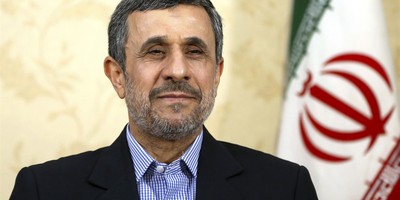“I plan to say some things that may challenge your assumptions,” warned Louisiana Governor and rumored 2016 contender Bobby Jindal. “You may not agree with all of it, but that’s ok, ours is a party that can handle real discussions.”
Challenge accepted, governor.
One of Jindal’s big takeaways, as I understand it, was that to win, we must “re-calibrate the compass of conservatism.” “Our principles are timeless,” he clarified. However, “we do need to re-orient our focus to the place where conservatism thrives – in the real world beyond the Washington Beltway.”
On this point, the governor is absolutely correct. Republicans cannot convincingly argue Washington is the problem when they have become part of a corrosive Washington culture.
But that was not Jindal’s big takeaway from his speech. “If you take nothing else away from what I say today,” he pleaded, “please understand this – We must not become the party of austerity.”
Austerity is the language of the left. It is the language of Paul Krugman, Ezra Klein, Matthew Yglesias, Jonathan Chait and Frank Rich. It is the language used by proponents of big-government – those who believe government spending equals economic growth – to savage those who believe growth and economic prosperity comes from the world beyond the Washington Beltway.
“[O]bsessing with zeroes on the budget spreadsheet,” as Jindal characterizes it, is not some misguided quest for austerity; rather, it is a fiscal reality – a fiscal reality that he readily acknowledges is “the bankrupting of our federal government.”
But downplaying the desire to balance our nation’s budget as merely “an obsession with government bookkeeping” misses the point. Balancing the budget is not only a moral imperative (the children!), but doing so will also require the very reforms that Jindal touted.
Recommended
Similarly, we cannot separate the “nice goal” of balancing the federal budget from our “primary objective” to “grow the private sector.” As Jindal himself may say, the facts are in; trillion dollar deficits stifle economic growth.
The uncertainty caused by Washington’s reckless tax, spend, and borrow policies is keeping investment on the sideline. The world may not revolve around Washington, but far too many decisions regarding job creation do revolve around Washington.
Jindal is right to say, “We should let the other side try to sell Washington’s ability to help the economy.” Framing forthcoming policy decisions under the rubric of a balanced budget isn’t a defense of Washington, though. Instead, it is creating the environment necessary to “promote the entrepreneur, the risk-taker, the self-employed woman who is one sale away from hiring her first employee.”
Some “Washington Beltway” types viewed his speech as a “repudiation of Paul Ryan[’s] approach” and of the “DC tea party groups that obsess about the budget [and] deficits.”
For a speech focused on how to talk “like adults” and the need to “stop insulting the intelligence of voters,” its framing was bizarre. Balancing our nation’s budget and empowering individuals, creating opportunity and promoting growth go hand in hand. An imaginary – and needless – division, it is ripe for exploitation by proponents of bigger government.
The choice is not between “managing government” and embarking “toward the mission of growth.” Growth cannot occur when the federal government behaves with such recklessness it stifles the entrepreneurial spirit of Americans.
While I dedicated 550 words to quibbling with Jindal’s vision, I’d be remised if I didn’t clarify that, on the whole, his speech (here) is worth reading, and re-reading.
One of his most compelling moments was when he declared, “We must quit ‘big.’ We are not the party of big business, big banks, big Wall Street bailouts, big corporate loopholes, or big anything.” These are all protected classes in America’s political system, and that must change.
As Heritage Action’s Mike Needham and Tim Chapman wrote in October 2011, “This corrupt nexus is at the heart of the dissatisfaction across the country towards Washington… The collusion between the Washington Establishment and “The Bigs” is now apparent to average Americans.”
For conservative ideals to prevail, the Republican Party must shed the “big” label and the impression that they too are creatures of this corrupt nexus. And they must win the argument on growth and balance.
Governor, my challenge to you is to unite these visions, not create divisions.
























Join the conversation as a VIP Member